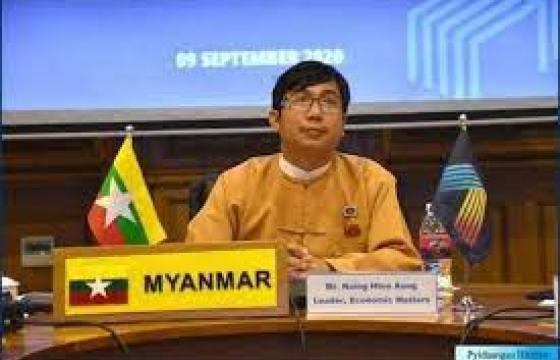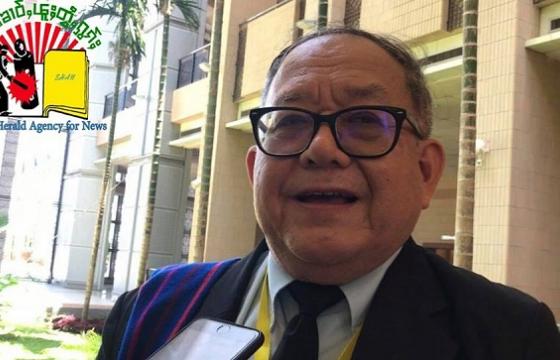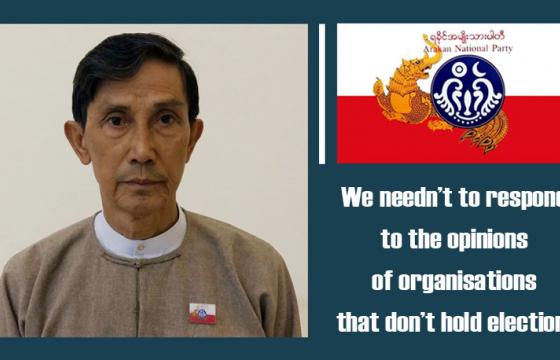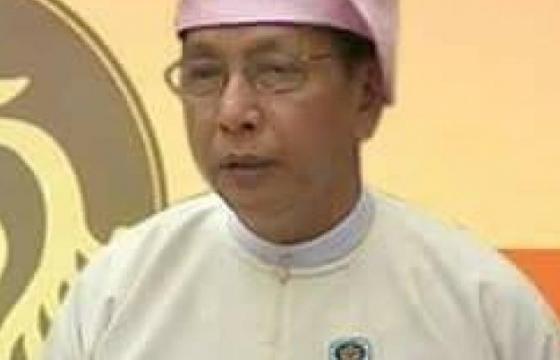Aung San Suu Kyi, Burma’s State Counsellor and leader of the National League for Democracy (NLD), has pledged to hold a national conference later this year that would follow in the footsteps of the historic Panglong conference attended by her father General Aung San and representatives of Burma's ethnic groups.
The agreement reached at Panglong, stipulated a significant level of autonomy for Burma's ethnic groups in exchange for their decision to support Aung San's bid for independence from Britain. Aung San, was assassinated just months after the agreement was reached, his successor U Nu, did little to implement the agreement before he was overthrown by General Ne Win in 1962. The subsequent military regimes that ruled Burma also disregarded the commitments made by General Aung San at Panglong.
This week SHAN interviewed Lt. Gen. Yawd Serk, Chairman of the Restoration Council of Shan State/Shan State Army (RCSS/SSA), to discuss his thoughts on Aung San Suu Kyi's proposed summit, the ongoing situation in Shan State and his recent meeting with the Shan State Chief minister, Dr. Linn Htut.
Lt. Gen. Yawd Serk's organisation the RCSS/SSA is one of eight ethnic armed groups that signed the nationwide ceasefire agreement (NCA) last year with the central government. While the RCSS/SSA has not clashed with government forces since signing the NCA, there have been repeated clashes over the past 6 months between the RCSS/SSA and the Ta’ang National Liberation Army (TNLA). The TNLA is member of the United Nationalities Federate Council (UNFC), who unlike the RCSS/SSA did not sign the NCA.
Q: In your meeting with the Shan State Chief Minister, what did you discuss with him?
A: "As he is the new Shan State Chief Minister, I met with him to build a good relationship. We also talked about how the RCSS/SSA can cooperate with the new government for Shan State's development and the betterment of the people."
Q: What are your thoughts on the 21st Century Panglong conference which is going to to be led by Aung San Suu Kyi?
A: "Regarding the 21st Century Panglong conference which Aung San Suu Kyi will lead, I do not know in detail what this conference will be like. However, what we do know is that the Panglong conference has three main points; the commitment to Panglong, the Panglong Agreement and the spirit of Panglong. Regarding these three points, I have no idea which points she will work on and how she will deal with it."
Q: As an RCSS/SSA leader, what would you say about this 21st Century Panglong conference?
A: "I hope that Daw Aung San Suu Kyi will do her best for this Panglong conference. However, I am also worried that she might misunderstand and do it in a wrong way. If this conference is wrong, it will affect the future of the union. The result from the first Panglong Agreement is the ongoing civil war in the country. I don’t think anyone knows how this 21st Century Panglong conference will look like. I would like to say that before holding this conference every group should discuss what they want the conference to be like. I’m afraid if we do not discuss clearly first, this will affect the conference."
Q: The RCSS are rumoured to have been recruiting new soldiers in Nam Sarng Township, what would you say about this issue?
A: "This news is wrong. We were accused by the government military [Tatmadaw] of recruiting villagers. If the media wanted to know you should go to villagers and ask them. The RCSS held its Shan State Resistance Day on 21 May at its Loi Tai Leng headquarters so that these people could join the ceremony.
"We have a policy that if anyone does not want to be a soldier, we won't force them."
Q: With the new government how will you work with them on the Nationwide Ceasefire Agreement (NCA)?
A: "The NCA was led by the previous government. But, for this new government we do not know how they will proceed. I can only wait and see."
Q: How will the problems between the RCSS and TNLA be solved?
A: "The problems between us and the TNLA cannot be solved with armed fighting. The best way to solve the problems is for both sides to meet and discuss these problems. The United Nationalities Federal Council (UNFC) formed a committee during Thingyan [the New Year water festival] for talking. However, after the water festival, the TNLA attacked us again. They intentionally created problems between the Shan and the Palaung people. In order to solve the problems we have avoided fighting with them. But, there were over 30 clashes with them and we lost eight soldiers and over 30 were injured. The loss is normal in conflict, but it affects the people. I felt depressed about this."
BY SAI AW / Shan Herald Agency for News (SHAN)






